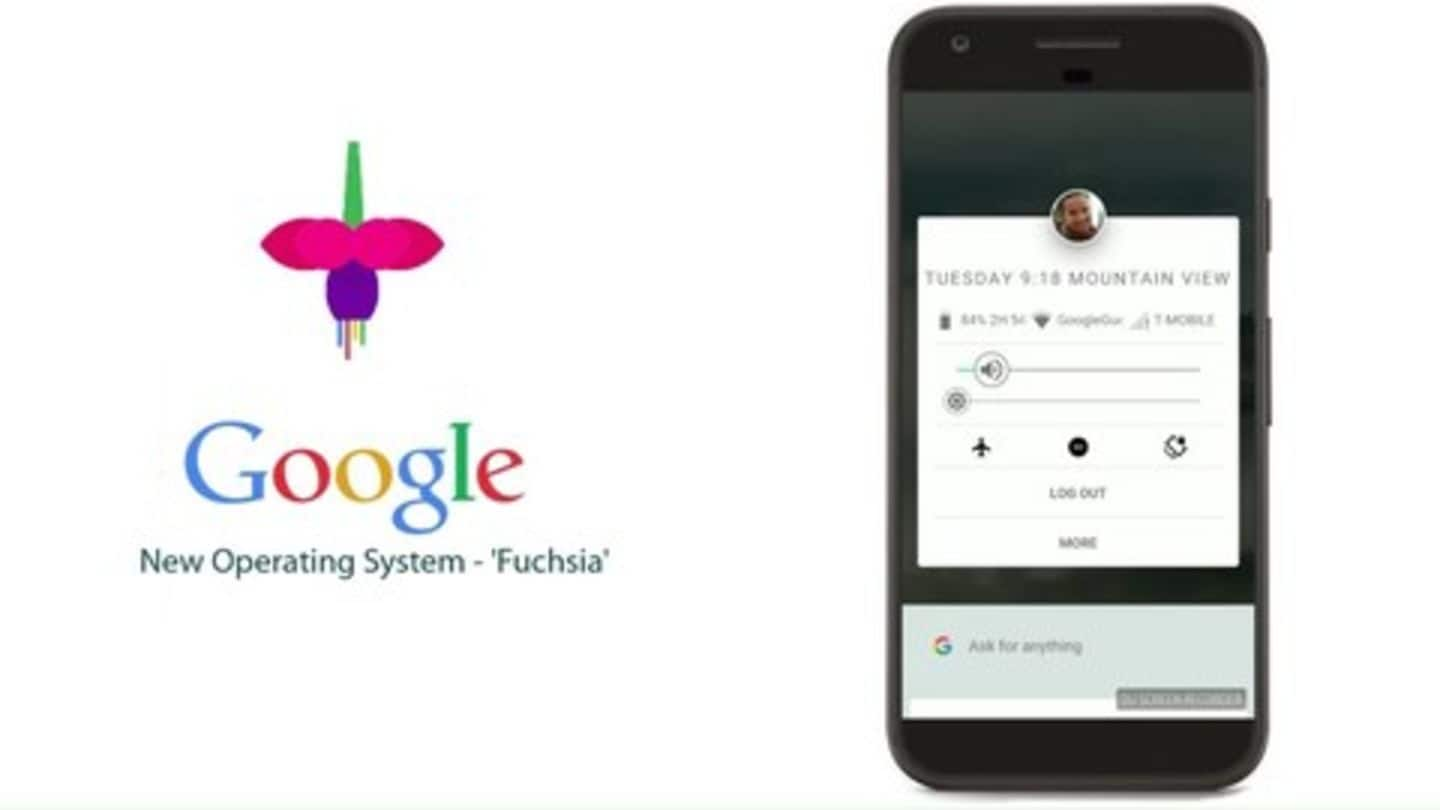
Google reportedly working on Fuchsia, that would replace Android
What's the story
Over the last couple of years, a team of engineers within Google have been working on a stealth project dubbed Fuchsia. While the name doesn't give away much, Fuchsia is an upcoming operating system by Google which, the company hopes, will one day replace its Android OS. Reportedly, Fuchsia is also being designed to run on devices apart from phones and tablets. Here's more.
Technicalities
Juicy details for the tech enthusiasts out there
For the tech enthusiasts out there, it's interesting to note that Fuchsia isn't derived from the Linux kernel, but instead, uses a new Magenta kernel designed to compete with IoT-oriented operating systems like ThreadX and FreeRTOS. However, Magenta, unlike the others, is being designed to scale all the way up from smartphones to desktop computers.
Why Fuchsia?
The prime motivation behind developing Fuchsia
According to Bloomberg, the prime motivation behind Fuchsia is to create a single operating system capable of running all of Google's own products, from Pixel smartphones to Google Home smart speakers, as well as third-party devices that rely on Android/Chrome OS. The plan is to embed Fuchsia in connected home devices within three years, and then move on to larger systems like laptops.
Capabilities
Fuchsia OS is being built with voice-interaction at its core
Additionally, Google believes that Android, which was developed just when smartphones were getting touchscreens, isn't equipped to handle the voice-based apps and OS capabilities that Google envisions as the future. Consequently, Fuchsia is being developed with voice-interaction capabilities at its core. Fuchsia can also adjust to various screen sizes, which can help it cater to a vast range of products from TVs to refrigerators.
Development
Currently, over 100 engineers are working on Fuchsia
The project, reports about which first emerged in 2016, currently has over 100 engineers including Matias Duarte, the brains behind Google's Material Design language for the Android interface. Despite the strong team, it isn't clear, as of now, as to when the development of the OS will be completed and when, or whether at all, the OS will become mainstream.
Internal feuds
Internal feuds erupt within Google over Fuchsia's development
Reportedly, the development of Fuchsia has also seen some internal feuds at Google. Some of the privacy principles that Fuchsia developers are enshrining have already come into conflict with Google's business model - tighter privacy envisioned in Fuchsia would negatively impact Google's ads business which uses user data for targeted advertisement. In one such clash between advertising and engineering, the ad team prevailed.
Competitive edge
A more robust OS would enable better competition with Apple
However, it would be naive to assume that Fuchsia is just a basement project. Reportedly, despite not charting out an official roadmap, CEO Sundar Pichai has already voiced his support for the project internally. Additionally, a new, more robust OS would enable Google to compete more closely with Apple, whose operating systems already boast better performance, privacy, and security than Android or Chrome OS.
Challenges
Several challenges remain before Fuchsia becomes a reality
However, several challenges remain for Google. The obvious one involves convincing OEMs which rely on Android to shift to Fuchsia. Additionally, to achieve the levels of success Android did, Google would also have to get third-party software developers and hardware manufacturers on board to create an app ecosystem and supporting hardware for Fuchsia. Will Fuchsia see the light of day? Only time will tell.